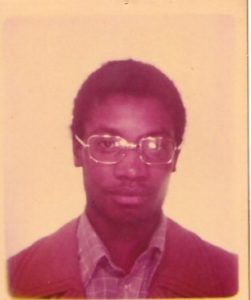Black Power in Britain started in 1967, reached its apogee in 1971 and was in terminal decline by the mid-1970s. It was an expression of frustration, anger and – most importantly – resistance to the individual, institutional and state racism experienced by the postwar generation of black immigrants to Britain.
The British state took the threat of Black Power very seriously, both at home and across the Commonwealth. When an international conference on Black Power took place in British Protectorate Bermuda on 10-13 July 1969, the British government sent a warship full of marines to anchor off the coast in case civil disorder broke out. It also sent Special Branch officers undercover as conference delegates.
From the mid-1960s onwards the spectre of race riots, of the sort blazing across major northern American cities, haunted the British press and politicians. In an effort to stop such a thing happening here, Special Branch was instructed to use its powers of surveillance, infiltration and counter-intelligence against Black Power groups and activists and report back to the Home Office.
In this session, historian Rosie Wild will sketch an outline of the British Black Power movement and explain why this small and relatively short-lived movement scared the British establishment so much. Drawing on her recent work for the Undercover Research Group, she will also look at the different ways the Metropolitan Police’s Special Branch tried to spy on, infiltrate and disrupt London’s Black Power groups and explain why ultimately their efforts were hobbled by their own racism.
Winston Trew was a leading member of British Black Power group The Fasimbas and a member of the Oval Four, a group of young black activists wrongly convicted of a fabricated crime on their way home from a political meeting. Trew’s relentless fight for justice led to the quashing of the Oval Four’s convictions by the Court of Appeal in 2019 and 2020, and a formal apology from the British Transport Police.
Trew will talk about his experiences as part of the unique UK Black Power group the Fasimbas, whose success in leaving no paper evidence for Special Branch to use against them has meant that historians have struggled to document their history. Now writing a book about the history and philosophy of this important UK Black Power organisation, Trew will talk about his time in the Fasimbas and how the group evaded the unwanted attention of the police. He will also explain how his Fanonian training as a Black Power activist was central to his ability to psychologically resist the pressure put on him by corrupt Detective Sergeant Derek Ridgewell to conform to the slave/master dynamic of powerless black man and powerful white authority and ultimately outsmart him even while appearing to accede to a forced confession.
